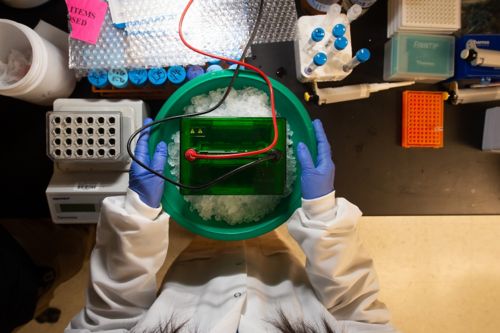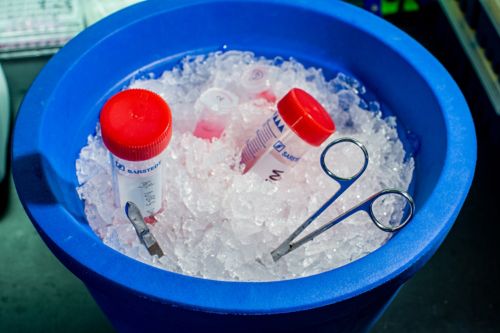St. Jude Family of Websites
Explore our cutting edge research, world-class patient care, career opportunities and more.
St. Jude Children's Research Hospital Home

- Fundraising
St. Jude Family of Websites
Explore our cutting edge research, world-class patient care, career opportunities and more.
St. Jude Children's Research Hospital Home

- Fundraising
Anang A. Shelat Lab
Discovering and translating druggable liabilities in pediatric cancers.
About the Shelat Lab
Our laboratory is focused on identifying and exploiting weaknesses in multiple types of cancers and tumors. We are particularly interested in targeting the DNA damage response in pediatric cancers. Our lab uses chemical biology and machine learning to understand how we can identify and target these weaknesses. Finding these vulnerabilities will ultimately lead to guide therapies with existing drugs or lead to new drug targets.

Our research summary
The focus of our laboratory centers on how to effectively exploit DNA repair deficiencies and transcriptional dependencies in pediatric cancers, all with an eye toward bringing novel therapeutic approaches to the clinic. We are actively engaged in several translational project teams working to develop new approaches to treat pediatric hematological malignancies, brain tumors and solid tumors, many of which have successfully launched clinical trials within, and collaboratively beyond the institution.
Dr. Shelat also directs the Lead Discovery Informatics Center within the Department of Chemical Biology and Therapeutics.
Identifying treatable liabilities in pediatric cancer
As we build our understanding of potential liabilities in pediatric cancer, we continue to investigate ways to exploit them with existing drugs or novel therapeutics. The research in our laboratory builds upon our long-standing interest in PARP inhibitors, expanding to evaluation of other modulators of the DNA damage response (DDR), using both established and innovative methods to evaluate DDR. We have also developed robust research programs to study small molecule transcription modifiers (i.e., BET inhibitors) and compounds that disrupt the localization of tumor suppressors and oncogenes (I.e., XPO1 inhibitors).
In collaboration with radiation oncologist Christopher Tinkle, MD, PhD, our laboratory is also working to develop rational combination cancer therapies to optimize the use of DDR inhibitors and radiation therapy. This work is highly collaborative in nature, involving the insights and expertise of clinicians, pharmacologists, cancer biologists, and engineers.

Machine learning and genomic scars
Our laboratory has launched a project to use machine learning approaches to observe and evaluate genomic scars – lesions on the genome characterized by defined patterns of mutations and/or structural variations. Our research involves training neural networks to identify patterns within these scars so that we can predict DDR deficits, and ultimately, guide therapy with existing drugs or identify new drug targets to pursue.
Selected Publications
Contact us
Anang A. Shelat, PhD
Associate Member, St. Jude Faculty
Department of Chemical Biology and Therapeutics
MS1000, Room E9064
St. Jude Children’s Research Hospital

Memphis, TN, 38105-3678 USA GET DIRECTIONS